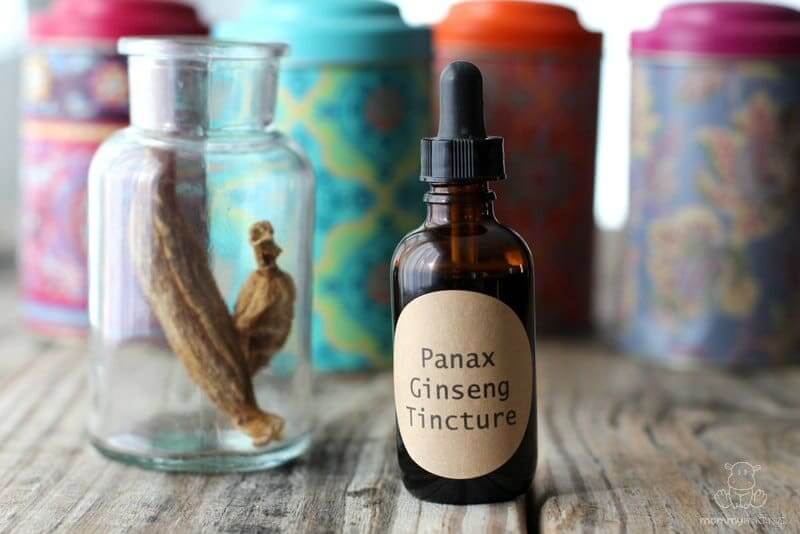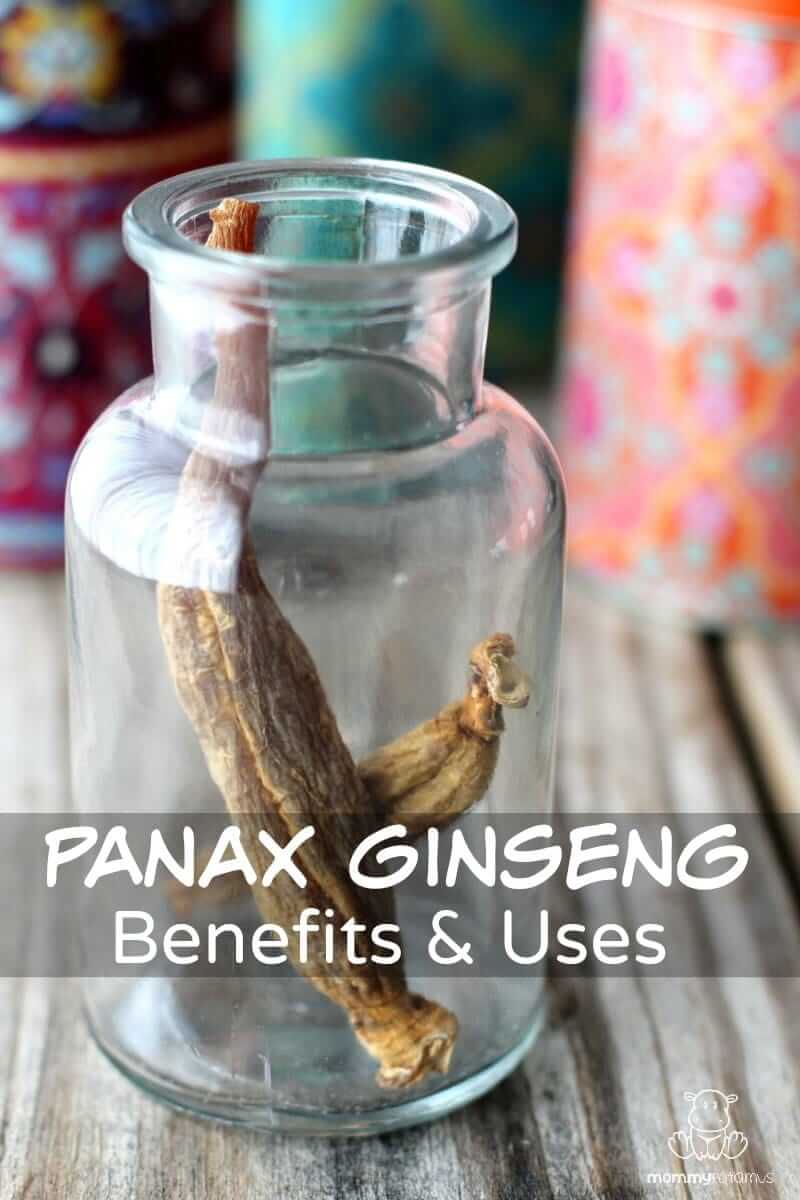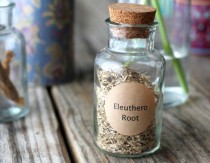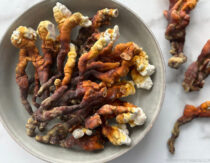
In Latin, panax means “cure-all,” so it probably won’t surprise you to learn that this form of ginseng is one of the most revered plants in the Chinese herbal tradition. Also known as Asian ginseng, Korean ginseng, and red ginseng, this adaptogen has been the subject of literally hundreds of studies designed to explore it’s benefits. In many ways it’s lived up to its name, but I don’t think it has any effect on laundryitis or justcleanedthisfiveminutesagowhathappened?
Alright, back to ginseng. (Deep breath)
According to Adaptogens: Herbs for Strength, Stamina and Stress Relief “In Western clinical practice, Asian ginseng is considered the most stimulating of the adaptogens.” So stimulating, in fact, that it may be too much for Type A personalities. For those individuals, eleuthero and American ginseng are usually preferred.
Panax ginseng is believed to support the hypothalamus, pituitary, adrenal axis – HPA axis for short. This axis is what controls our stress response. In addition, it is thought to have a positive effect on the immune system, circulatory system, cognitive function and mood, and the nervous system. (More on the benefits later.)
Blending Panax ginseng with other adaptogens
According to Donald Yance, clinical herbalist and author of Adaptogens in Medical Herbalism, ginseng may be too stimulating when taken alone as a single herb, even for non Type A personalities. He prefers to blend it with a variety of other adaptogens (here’s a list) so that it makes up about 20% of the overall tea, tincture, etc.
According to Michael Greer, M.D., “The combination of Ashwagandha and Korean Ginseng is excellent if a patient’s budget is tight. Each has adrenal restorative properties on its own, but they complement each other when combined.” Another adaptogen that several books recommend is licorice, which is another herb that is typically used as a small part of a larger blend.

Benefits of Panax Ginseng
According to both herbal tradition and current research, Panax ginseng is helpful for:
- Promoting balance during stressful experiences, particularly when the stress is chronic (source)
- Endurance support during exercise (source)
- Memory (source)
- Immune support (source)
- Detoxification support (source)
- Cognitive function (source)
- Circulation (source)
- Mood (source)
(This list was compiled in part based on the research presented in Adaptogens in Medical Herbalism)
Is Panax Ginseng safe during pregnancy and breastfeeding?
According to the Botanical Safety Handbook: 2nd Edition, Panax Ginseng is a Safety Class 1A herb – the safest rating possible. This category is described as:
“Herbs that can be safely consumed when used appropriately.
- History of safe traditional use
No case reports of significant adverse events
with high probability of causality
No significant adverse events in clinical trials
No identified concerns for use during pregnancy
or lactation
No innately toxic constituents
Toxicity associated with excessive use is not a
basis for exclusion from this class
Minor or self-limiting side effects are not bases
for exclusion from this class”
In one recent multinational study that examined herbal products taken by expecting women, Panax ginseng was classified as one of the “safe herbals” taken. (source) For a more in-depth discussion of opinions regarding the use of adaptogens during pregnancy/breastfeeding, see this post.
How much is recommended?
Adaptogens are herbs rather than pharmaceutical drugs, so there are no dosages. However, herbalists do share knowledge about what methods of consumption seem to produce a beneficial effect for most people.
The suggestions below are found in Adaptogens: Herbs for Strength, Stamina and Stress Relief by ethnobotanist David Winston and herbal expert Steven Maimes.
- For a 1:5 tincture – which is 1 ounce dried ginseng by weight, mixed with 5 ounces of 60 proof or higher alcohol and allowed to infuse for six to eight weeks – 20-40 drops up to three times per day. Another option is to purchase a pre-made tincture and use according to the instructions on the label after talking with your healthcare provider.
- As a decoction – “Take 1-2 tsp. of the ground herb or one root, slowly decoct (in a nonmetal pot) for ½ hour. Let steep for an additional hour. Take up to two cups per day.” (p.146)
- Capsules – “Powdered herb in capsules, two 400-500 mg capsules, two to three times per day; powdered extract, one 400-500 mg capsule, twice per day” (p.146)
What else do I need to know?
It is recommended that individuals avoid drinking a lot of coffee when consuming Panax ginseng. Also, please check with your health care provider before using any herbal remedy.
Want more research-backed natural remedies?
No problem, I’ve created a free ebook for you – Kitchen Apothecary: 25+ Natural Remedies Using Ingredients From Your Pantry – as a gift for signing up for my newsletter. You’ll also get updates when I post about safe essential oils for pregnant/breastfeeding mamas, exclusive gifts and coupons (I was able to give away a jar of free coconut oil to anyone who wanted it recently!), plus other goodies.
Sign up using the form below.





Thank you for this! A lot of hard work here compiling of this information.
Can one consume fresh ginseng and how?